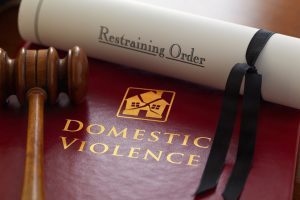 What “probable cause” really means—and why words alone can trigger an arrest
What “probable cause” really means—and why words alone can trigger an arrest
I hear it all the time: “How can they charge me? There’s no evidence—it’s just her word against mine.” In Connecticut, that can still lead to handcuffs. Under the mandatory arrest rule for domestic cases, one sworn statement, along with probable cause, is often sufficient for police to make an arrest—no photos, no video, and no outside witnesses are required.
Quick Snapshot
-
Probable cause ≠ proof. It’s a low threshold—a reasonable belief a crime happened based on what officers see/hear.
-
An arrest can happen on statements alone. Officers don’t decide who’s ultimately truthful on scene; that’s for court.
-
Next-day court. Expect conditions of release, a protective order, and possibly DCF involvement if children were present.
What “Probable Cause” Really Means
Probable cause is far below “beyond a reasonable doubt.” If the complainant tells officers you shoved, hit, or threatened them—and the story seems plausible given the circumstances—police can arrest you even if you fully deny it. They are not required to resolve credibility disputes at the scene.
How Domestic Violence Cases Differ from “Normal” Cases
In many non-DV situations, officers have discretion to warn, mediate, or take a report. In Connecticut domestic cases, once officers believe a family-violence crime occurred, arrest is mandatory. The alleged victim’s wishes don’t control; it is the prosecutor who later decides whether to continue or dismiss the case.
Why “He Said, She Said” Still Goes to Court
At trial, the standard jumps to beyond a reasonable doubt. Jurors consider consistency, demeanor, texts, 911 audio, medical records, bodycam footage, and whether the story is plausible. However, most DV cases never reach a jury—the risk, cost, and uncertainty often prompt many people to resolve the case sooner.
A Practical Path: Diversionary Programs
If you qualify, the Family Violence Education Program (FVEP) can resolve the case without a conviction. Successful completion typically leads to dismissal and a clean record. Even people who insist they’re innocent sometimes choose FVEP to avoid trial risk and move on with life.
Key Takeaway
Yes, you can be arrested on someone else’s statement alone in a Connecticut domestic case. Don’t panic or argue. Follow your paperwork, avoid contact if restricted, and talk to a defense lawyer immediately about your options, including diversion and a protective-order strategy.
Frequently Asked Questions (10)
1) Can police arrest me with no photos or witnesses?
Yes. A sworn statement can meet probable cause if the account appears credible in context.
2) What if the alleged victim doesn’t want to press charges?
That doesn’t control the arrest or prosecution. After an arrest, the state decides whether to proceed.
3) Do I have to give a statement to the police or Family Relations?
No. You must identify yourself, but you don’t have to discuss facts. Be polite and brief; ask to speak with a lawyer before answering detailed questions.
4) Will I have court right away?
Typically, the next business day. Expect a Family Relations interview and a judge setting a protective order.
5) What is a protective order—and can I contact the other person?
The order controls contact (from partial to full no-contact). Follow the order, not private agreements. Violations create new charges.
6) What if I acted in self-defense?
You can still be arrested at the scene. Self-defense is raised and litigated later with counsel.
7) Will this show up on my record if the case is dismissed?
An arrest appears while the case is pending. If the case is dismissed—e.g., after FVEP—the record is cleared.
8) Should I do FVEP or fight the case?
It depends on evidence, your goals, and risk tolerance. FVEP is often the quickest route to dismissal; fighting may make sense where evidence is weak or collateral consequences are high. Talk strategy with counsel.
9) Can I get the protective order changed so I can go home?
Often, we can ask to modify orders after arraignment—especially if the other party is safe, supports changes, and you’ve complied with conditions.
10) What about firearms?
DV arrests and protective orders can trigger firearm surrender and permit issues. Comply promptly with any surrender requirements to avoid new charges; your lawyer can address return/eligibility later.
Call Me Today
If you’ve been arrested in a Connecticut domestic case, the first 24 hours matter. I’ve helped countless clients protect their future, secure protective-order modifications, and resolve cases—often with dismissals.
Call (203) 357-5555 or fill out my contact form for a free consultation. Let’s protect your rights and chart the smartest path forward.
 Connecticut Criminal Lawyer Blog
Connecticut Criminal Lawyer Blog










